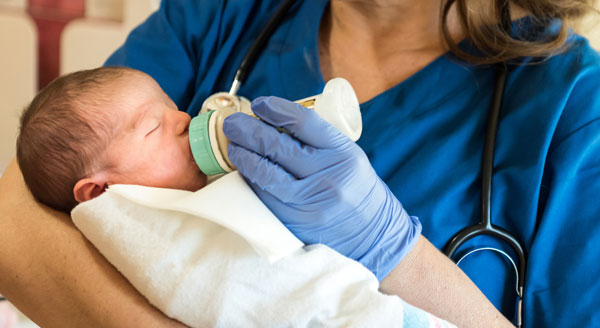Our title might be misleading at times. Speech-language pathologists (aka speech therapists or SLPs) study human communication, its development, and associated disorders. This ranges from how we use our muscles for talking to how our neurological systems mature and work. In short, we can help with more than just speaking or talking. Many parents are surprised when they learn of all the areas in which we can help their children.
Here are five ways a pediatric speech-language pathologist can help your child:
 Speech
Speech
However, you already knew that! Speech is the ability to express thoughts and feelings by producing sounds. Suppose family members or teachers are having a hard time understanding your child. In that case, an SLP is the right person to assess your child's abilities to produce sounds. Typically, this is called an “Articulation Assessment,” where all sounds (consonants, vowels, and various combinations thereof) are checked out. It is not only our job to identify those sounds that are difficult or missing in your child's speech, but also to figure out why this happens and how to fix it.
Additionally, it is our job to understand which sounds are considered developmentally and dialectically appropriate for the child. Underlying factors like muscles of the body and face, accents, dentition (teeth and mouth) are just a few things that can affect how your child produces sounds and talks.
 Understanding Language
Understanding Language
Language is a broad term in our field. Essentially, it boils down to a system or method of communication used by a group of people or community. So, if you're reading this, our current language is English. Now for us to understand each other, the language we use must consist of words and rules, expressed through speech, writing, or even body language. Some kids might have difficulty understanding and following these established rules and words.
Typically, kids who have difficulties in this area tend to appear as though they are not paying attention, are unable to follow commands ("they just don't listen") in their dominant language, and/or are struggling in their natural setting. They might appear not interested in what others have to say. If this is the case, an SLP can help assess your child's receptive language, which is a fancy word for understanding language. Depending on your child's age, we use tests, play, caregiver questionnaires, and observations to determine your child's needs and create a therapy plan if needed.

 Use of Language
Use of Language
Some kids are good at understanding language. They understand what you are saying or what it is that you need them to do. Still, they might have difficulty expressing themselves using the same methods (speech, pre-literacy skills, or body language). Typically, if this is the case, they might appear shy and they might be using fewer words than their peers. They might have trouble finding the right words, and, at times, they even leave words out of sentences. In these cases, "frustration" is often used to describe the child's struggle. Here is where we come in. SLPs have an array of tools we use to evaluate and help your child. These vary from therapy sessions to home programs. If your child is in day-care or a pre-school, we might even recommend environmental modifications to ensure your child’s greatest success in his or her natural environment.
 Social Development
Social Development
The topic of social development in children has been in the limelight, especially with the rise of autism spectrum disorder cases in the recent decade. Social language is how we communicate with the world around us, with or without words. Social communication is essential because it serves as the basis of all our interactions and creates the foundation to build meaningful relationships with others.
Children who have difficulties in this area might have problems following rules on the playground, keeping up with the topic of conversation, understanding emotions, or adjusting the way they talk to fit different people or situations. They might have difficulties making friends at school and tend to keep to themselves because of this. We learn social communication as babies, and SLPs can identify social development difficulties in children as young as 3 to 6 months old. If your baby is not giving you eye contact, does not smile at you or others, uses gestures like pointing, or does not seek your attention for play, a visit to your pediatric SLP may be warranted.
 Feeding and Swallowing
Feeding and Swallowing
Yup, your read that right; SLPs are trained and certified to help people who have trouble eating and swallowing their food. This might be babies who have difficulty latching on a bottle or are refusing food from a spoon. It's common for us to see kids who only eat purees and whose parents are struggling to expand the types of foods their children eat.
Gagging or choking on food, struggling with reflux, problematic behaviors around mealtimes are all problems we can help with. I'm sure you've heard of the term picky eater. Unfortunately, many parents are advised to brush off this eating difficulty as temporary and something their child will outgrow. But what if they don't? What if every month that goes by, your child eliminates more and more foods from his/her diet? When your child's diet is so limited, putting at risk growth and development, you might need the help of an SLP.

Honestly, this list is just a start to the many ways an SLP can be of service to you and your child. SLPs can help kids who stutter and teach kids to use computer-based aid devices when they cannot use their voices well. We work with kids in recovering their speech or helping them eat again after surgery. SLPs also treat kids recovering from brain injuries. We help children become effective participants in their communities regardless of their limitations. Together with caregivers, we can make the best team for your child and make sure he or she reaches his or her full potential in life.
If you have any concerns with your child's communication or feeding development, please talk to your pediatrician about a referral to an SLP.